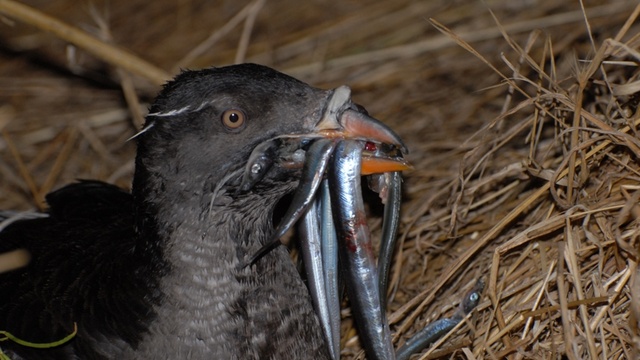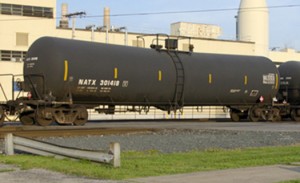By Austin Jenkins, Northwest News Network
This November, Washington voters will decide whether to require background checks for person-to-person gun sales.
Initiative 594 would close what gun control advocates used to call the “gun show loophole.” But these days, much of the unregulated gun trade is happening online.
‘It isn’t going to change anything
’
Aman More is a gun enthusiast who collects guns as a hobby. He won’t say exactly how many he owns. But when he buys or sells a firearm, he doesn’t necessarily go to a gun store. He’s just as likely to go online to a website like ARMSLIST — a kind of Craigslist for guns.
More said the on-line marketplace is great for finding hard to find guns.
“I picked this M6 Scout, it’s an over-under. It’s a 22 over 410 that is damn near impossible to find at a gun shop,” Mone said. “So because of ARMSLIST I could find it and find it at a good deal.”
Because More bought this rifle from another individual, no background check was required. Initiative 594 on Washington’s November ballot would change that. If it passes, individuals would have to go to a federally-licensed firearms dealer and pay that person to conduct a background check on the buyer.
More is firmly opposed to I-594. He wants to keep person-to-person gun sales unregulated.
“Making it harder for people like us to access firearms isn’t going to change anything,” he said. “You look at places like Chicago where it’s damn near impossible to get a firearm and the crime rate is insane over there.”
An unregulated market?
But sponsors of I-594 argue criminals are “flocking” to the online marketplace. They point to a recent report by the gun control group Everytown For Gun Safety. It identified 81 people in Washington who posted online ads seeking to buy a gun. The report determined 8 of those 81 were barred from possessing a gun because of a previous conviction.
Zach Silk, campaign manager for I-594, said that report indicates 10 percent of online buyers are prohibited from owning a gun.
“I would suggest that that’s too high a number and we can do more to reduce that,” Silk said. “One of the ways to do that is to make sure that rather than this being a private market that’s completely unregulated, let’s bring those people into the light of day and put them in a dealership.”
By dealership he means a licensed gun dealer. The Everytown For Gun Safety findings have not been independently verified. But the organization said it passed along its findings to law enforcement. Court records indicate federal agents periodically monitor on-line gun listings. And federal prosecutors have charged people for illegal Internet sales.
In Seattle, the U.S. Attorney is currently prosecuting a convicted felon who allegedly arranged to buy and sell guns on Facebook. In 2012, a Washington man was sentenced to prison for illegally selling a gun on ARMSLIST to a Canadian citizen. That buyer then used the gun to murder a woman he had dated.
A dueling measure: I-591
“I have concerns about online gun sales as well,” said Alan Gottlieb of the Second Amendment Foundation in Bellevue. He also read the report by Everytown For Gun Safety, but he had a different takeaway
.
Gottlieb said it shows the vast majority of online gun shoppers are not criminals.
“Now if we want to talk about to figure out how to stop those small numbers, I’ll sit down and talk with you,” he said. “But when you want to stop and infringe on everybody else’s rights, that’s the problem.”
Last year, Gottlieb worked behind the scenes with Washington lawmakers on compromise background check legislation. But that effort failed. This year he’s leading the campaign for a dueling gun measure on Washington’s November ballot. Initiative 591 would prohibit the state from adopting a more rigorous background check requirement.
‘Most of them are just gun enthusiasts’
More said that whenever he trades guns on ARMSLIST he takes precautions. He fills out a bill of sale and copies down the buyer’s driver’s license number. He prefers to sell to buyers with a concealed pistol license.
“Of all of the people that I’ve met on ARMSLIST, I haven’t one person come up that didn’t have the paperwork, that didn’t have a CPL,” Mone said. “Most of them are just gun enthusiasts.”
As for the pistol he recently listed on ARMSLIST, More said he sold it – to a candidate for Congress.
But he won’t reveal the name.














